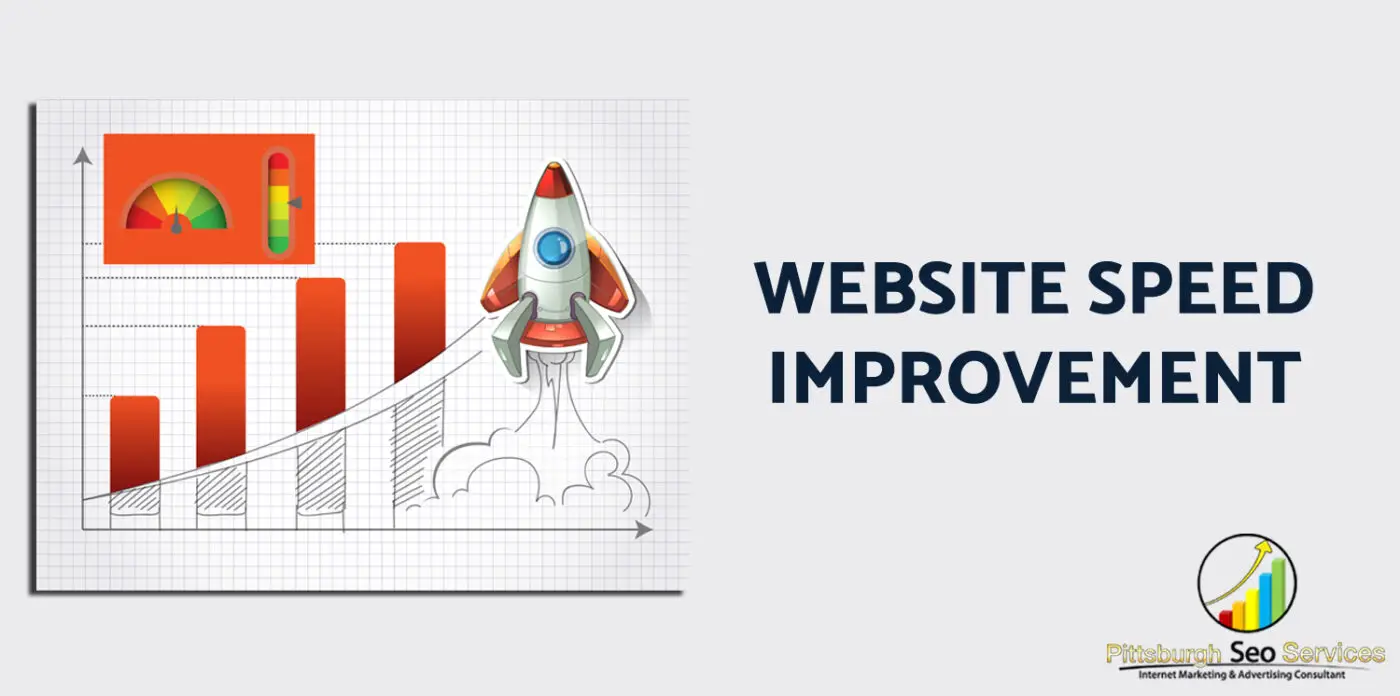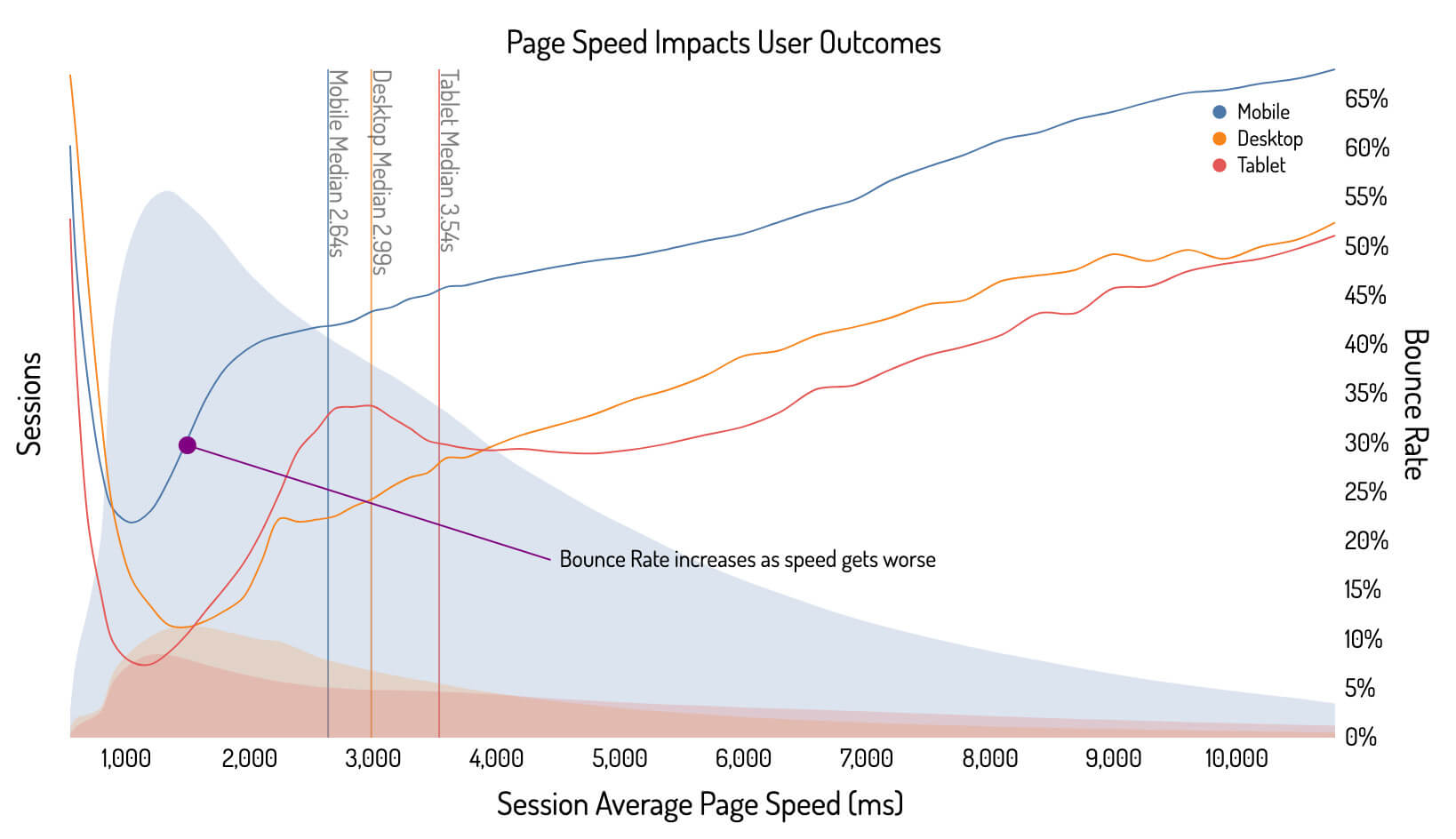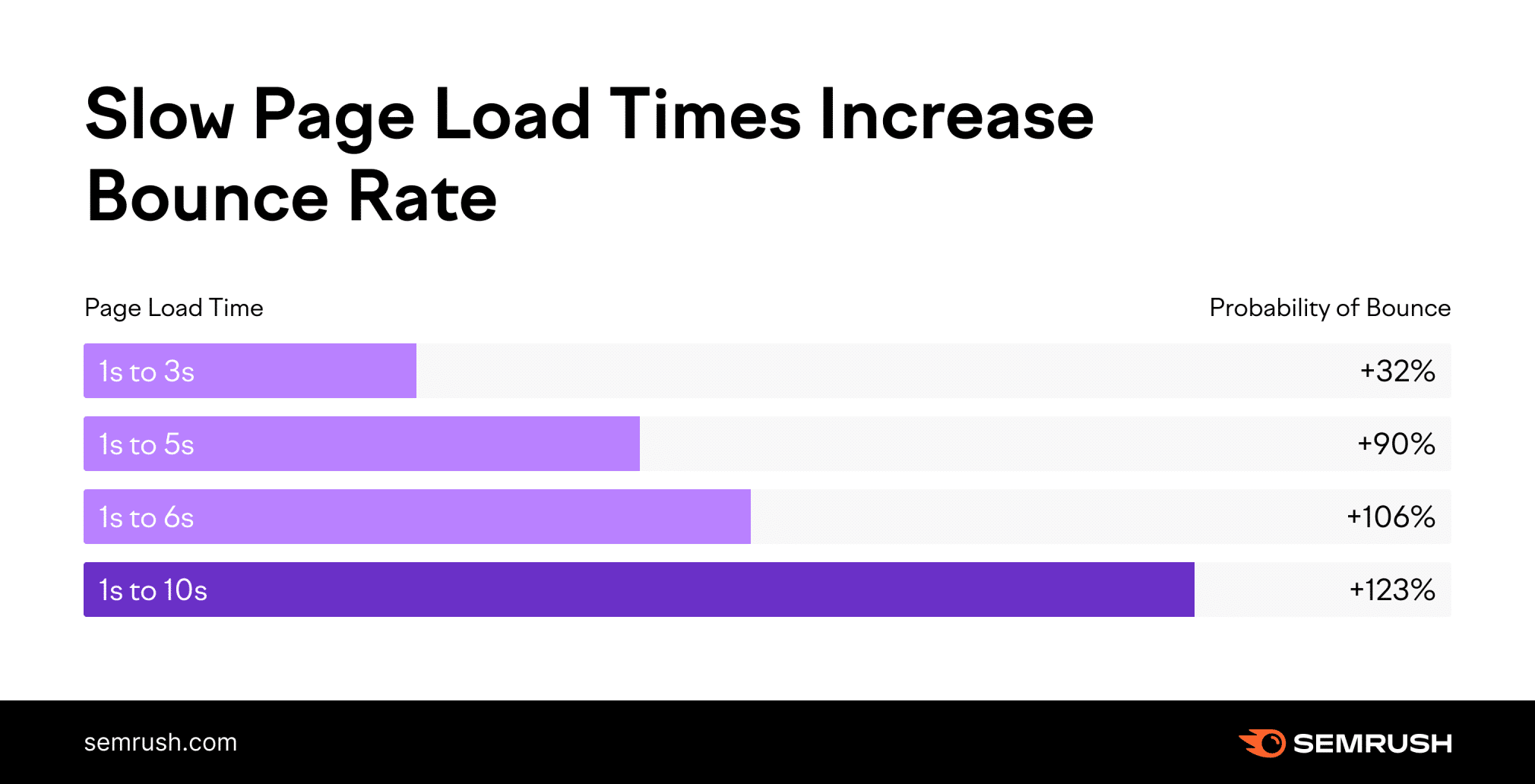Free Website WebPage Speed Checker & Tester

Measure your website speed and performance
This tool measures the performance of a page for mobile and desktop devices. It fetches the url twice, once with a mobile user-agent, and once with a desktop user-agent.
This tool checks to see if a page has applied common performance best practices and provides a score, which ranges from 0 to 100 points, and falls into one of the following three categories:
- Good: The page applies most performance best practices and should deliver a good user experience.
- Needs work: The page is missing some common performance optimizations that may result in a slow user experience. Please investigate the recommendations below.
- Poor: The page is not optimized and is likely to deliver a slow user experience. Please prioritize and apply the recommendations below.
By checking website speed, you will find out the number and size of elements on your page, distribution of images, script files, CSS files, HTML files, and the domain from which the elements originate.

The waterfall report includes the website URL, loading progress, request and response headers, and webpage link details for each item. You may notice slow item loadings, failed items, and bottlenecks on your part so you know where to put efforts to get your performance restored.
Every business today should have a website. While design, themes, user navigation and related content are essential elements of a good website, most people overlook page loading speed.
It is important to understand that today’s customers are almost always online. This means that if you want to access information online, you can do so using your desktop computer, laptop, tablet or smartphone. Plus, these digital users are also quite impatient. They don’t give websites that aren’t optimized for mobile devices or websites that take too long a second chance. If you want to make sure that you don’t lose half of your target market because your website is loaded for centuries, your focus should be on the speed of your website.
Website speed is not only important to your target audience (although they are probably the number one reason). Google also uses your website speed as a ranking signal. So, if you want your website to show up in Google search results, it’s time to step up your game and make sure your website loading speed is the same. Check your speed to see where you are standing. If your website is taking too long to load, build a faster website. Your goal is to improve the user experience the way you want these users to come back.
Why website speed matters

Aside from the fact that your current audience is probably the most impatient generation, you need to understand that no one likes a slow website. However, there are several main reasons why website speed matters:
1. We all know the old saying “First impression can be the last impression”. Well, this particular concept applies to websites too. When users visit your website for the first time, you know for sure that they are evaluating you. The quality of your website and even your business. It is highly recommended not to interrupt this because if your website is too slow or difficult to navigate, the user will NOT return. So if you want to make a strong first impression, make sure your website loads fast.
2. Today’s website users are always moving. Even if they have everything, they are still busy, always on the move and wanting immediate satisfaction. As for internet and websites, they expect speed. And if they don’t understand, they won’t handle it. The only way you’ll find people willing to wait for a website to load is if it’s a very credible established website. Let’s be real Technological problems can arise. Sometimes even the great Google can have a bad day. The only problem is, unless you are Google, you can’t risk disappointing your audience with a slow website. And Google doesn’t do it every day. This is an example of your audience only forgiving you if you crash once a year when you were as big and established as Google. Otherwise, you need to make sure that all variables are correct and website loading speed is one of the most important.
3. The goal of digital marketing is to get people to try your product or service. This applies to all types and sizes of websites, even simple blogs. A blogger wants readers; online bookstores looking for book buyers; an online electronics store wants to sell televisions. This is why the website should be built for its purpose and budget. You can do this by providing a great user experience often using a well designed template. If you want to sell books, make sure you have a big collection covering a wide selection. If you want to sell televisions, make sure you have all the high quality brands and good prices. If you want to grow your readers, make sure they have good content. But all this will not work if your website does not have good loading speed. Remember website speed is a very important factor for a good user experience.
4. If your website speed is poor, your chances of conversion are likely to be the same. If your website takes more than 3 seconds to load, on average about 40% of your visits will leave your website. What does it mean? This means that a slow website keeps customers away. This basically destroys the whole purpose of website creation. Check your speed and make sure you don’t lose 40% of your audience just because you don’t focus on speed.
Check your website speed

What we discussed earlier makes it crystal clear how important page loading speed can be. So it’s important to test your website frequently before launching it. You need to know how fast it loads in all major browsers like Microsoft Edge, Google Chrome, Firefox, Safari are some of the most popular. You should also pay attention to good loading speed on all platforms – whether desktop, mobile or tablet. It’s good to make sure you don’t just do a local speed check. If you want to reach a global audience, be sure to test site speed for all major countries.
This is the age of digital users they value quality and accessibility. Flexibility and ease of use are also important. And speed too. If your website is slow, those digital users will find other websites that offer the same thing but with quicker response times. Don’t lose valuable customers for something as simple as loading speed.
Here are the top 10 frequently asked questions (FAQs) about website speed, which highlight essential aspects and solutions for optimizing web performance:
Website speed refers to how quickly a webpage loads and becomes fully interactive for the user.
Google and other search engines use page speed as a ranking factor. Faster websites are more likely to rank higher in search engine results pages (SERPs).
Optimize images, minimize HTTP requests, use asynchronous loading for CSS and JavaScript, enable browser caching, and optimize the server’s response time.
Site speed averages the page speed for a sample of page views on a site, while page speed is typically measured as either the time to first byte (how long it takes for your browser to receive the first byte of information from the web server) or the time to fully load the page.
The type of hosting (shared, VPS, dedicated, cloud) and the quality of the hosting provider can significantly impact the speed of a website. Faster and more reliable servers improve load times.
Yes, too many plugins, or poorly designed plugins, can slow down your website. It’s important to keep plugins updated and uninstall unnecessary ones.
